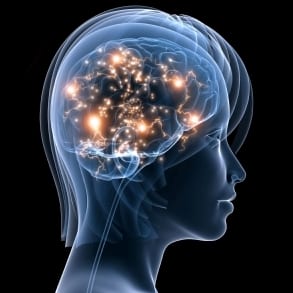Lunch Hour Lectures: Distracted, confused and unaware – the elusive gift of attention
By Kilian Thayaparan, on 24 October 2014
 “I hope you’re not all here for the wrong reason – so distracted, confused and unaware that you can’t pay attention”, Professor Nilli Lavie (UCL Institute of Cognitive Neuroscience) joked at the beginning of her lecture on the psychology and brain research of attention. One would suspect that among the packed out audience, many (like myself) were in fact there in the hope of a ‘cure’ for the attention difficulties we all face in our everyday lives.
“I hope you’re not all here for the wrong reason – so distracted, confused and unaware that you can’t pay attention”, Professor Nilli Lavie (UCL Institute of Cognitive Neuroscience) joked at the beginning of her lecture on the psychology and brain research of attention. One would suspect that among the packed out audience, many (like myself) were in fact there in the hope of a ‘cure’ for the attention difficulties we all face in our everyday lives.
Professor Lavie first provided a succinct yet simple definition of ‘attention’, describing it as a process of gathering our mental resources and focusing on a portion of information around us; a selective focus of our neural and mental processes.
She then posed two specific questions with regards to this: Why at some times are we so distracted that we can’t pay attention? And why at other times do we pay so much attention that we don’t notice important things that are happening around us?
Focusing on her first question, Professor Lavie provided some examples of where distraction occurs in our everyday lives; at work, research has shown that distractions take up 2.1 hours of the working day, whilst on the road, we’re exposed to both internal (e.g. mobile phones, children) and external (e.g. billboards, accidents) distractions.
 Close
Close



 Here in Aberdeen, the British Science Festival kicked off with a fascinating series of talks on recent research into the way bodily experiences affect even our most abstract mental facilities and knowledge.
Here in Aberdeen, the British Science Festival kicked off with a fascinating series of talks on recent research into the way bodily experiences affect even our most abstract mental facilities and knowledge.